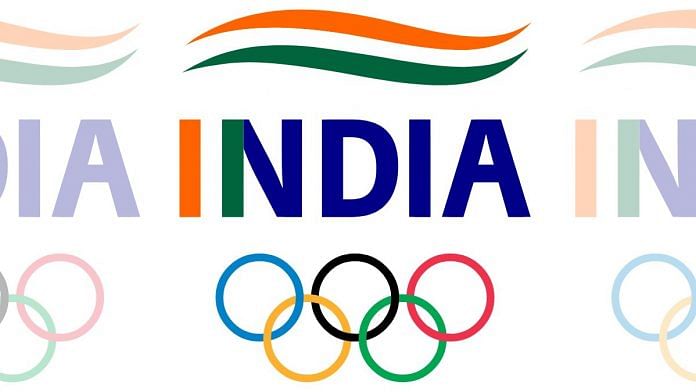New Delhi: The International Olympic Committee (IOC) Thursday issued its final warning to the Indian Olympic Association (IOA) to resolve its governance issues or else face suspension.
The IOC has cited internal disputes, governance shortcomings, ongoing court cases and election delays in the IOA as reasons for the warning and possible suspension.
The governing body for the Olympics has given India time till December 2022 to conduct its elections or face immediate suspension. The IOC’s executive board will meet in the same month.
The IOA is yet to elect a new president after former chief Narinder Batra had to step down from the post in May following court cases. There have also been disputes over the appointment of an interim president, with two people staking claim to the position.
The IOC executive board decided Thursday to not recognise any “interim/acting” president and to accept IOA secretary general Rajeev Mehta as the main point of contact.
In it’s ‘Olympic Charter’, the IOC details rules that must be followed by the national Olympic committees of participating countries to safeguard the integrity of sports.
Thursday’s letter to IOA by James McLeod, director of Olympic Solidarity and NOC Relations read, “…in view of the ongoing internal disputes, governance shortcomings and ongoing court cases, (IOC Executive Board) took the decision…to issue a final warning and consider the immediate suspension of the NOC of India at the next IOC Executive Board meeting in December 2022 if, by then, the NOC of India is not able to address and resolve its governance issues to the satisfaction of the IOC, in the interest of the sport and the athletes.”
If suspended, Indian athletes will not be able to compete under the Indian flag either in the Olympics or any other international sports events.
Also, the IOA — India’s national Olympic committee — will cease to operate as such, as defined in the Olympic Charter. The IOA will also no longer receive funds from the Olympic Movement, until the suspension is lifted.
If enforced, this won’t be India’s first suspension by the IOC.
In the 2014 Winter Olympics, Indian athletes had to enter under the IOC flag, following India’s suspension by the world body in 2012 for violating the Olympic Charter. Violations reportedly included having “tainted” officials.
The ban was lifted during the course of the 2014 Winter Olympics tournament, following fresh elections conducted by the IOA.
Also read: ‘Fiefdoms of individuals’: Why this lawyer is waging court battle to hold sports bodies accountable
Alleged irregularities, court cases
In 2016, Batra, a veteran sports administrator, became the president of the International Hockey Federation. He had earlier been the president of Hockey India. A year later, in 2017, Batra became the IOA president.
However, in February this year Olympian hockey player, Aslam Sher Khan moved a “conflict of interest” petition in the Delhi High Court, claiming Batra was continuing to intervene in the functioning of Hockey India, despite having given up his position as president of the body.
In May this year, the Delhi High Court struck down the post of “life member” in Hockey India, through which Batra had contested and won the IOA elections in 2017.
Batra has also been accused of misappropriation of Hockey India funds, prompting a CBI inquiry against him.
After Batra stepped down as IOA president in July, former All India Tennis Association Chief Anil Khanna was appointed IOA interim president. However, last month, Athletics Federation of India president Adille Sumariwalla claimed to have been voted interim/acting president of the organisation, hinting at infighting.
While IOA secretary general, Rajeev Mehta, has refuted Sumariwalla’s claims, Khanna has filed a contempt petition against him.
Meanwhile, a 2010 public interest litigation (PIL) filed by Delhi-based senior advocate Rahul Mehra regarding administrative flaws and loopholes that were being exploited by sports administrators in India, also turned the spotlight on the IOA.
Last month, the Delhi HC appointed a committee of administrators (CoA) to run the IOA and update its constitution to comply with the national sports code. The IOA had moved the Supreme Court against the Delhi HC verdict, but the apex court refused to interfere.
IOA elections were scheduled to have been held last December, but were delayed because of the amendments in the poll process.
Earlier this year, too, the IOC had warned the IOA that it would suspend the body if it failed to conduct its election at the earliest.
Since Thursday’s warning is the final one, the IOA will have to act swiftly to resolve internal disputes to avoid suspension. The IOC has also stated that its executive board reserves the right to take any further action, depending on how the situation develops.
Meanwhile, an IOC session, which was scheduled to be held in India in May 2023, has been postponed till September-October next year.
(Edited by Poulomi Banerjee)
Also read: More cricket, no chess — India’s sports channels are hurting national pride



